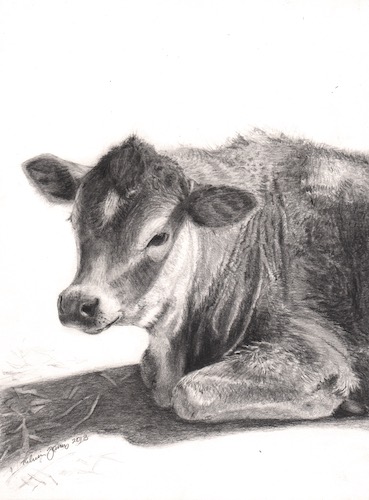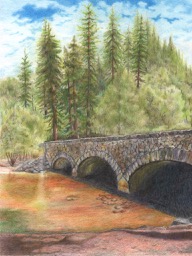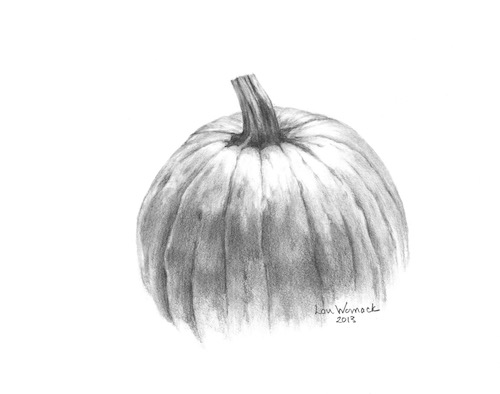
Drawing is a skill, not a talent. It is like typing: anyone can learn to type. Some will type 25 words per minute, some will type 60, and some whizkids will type 90 wpm. All of them are typing. Those who get the great speed and accuracy probably have some innate talent, or perhaps they work more at it because they enjoy it more. Maybe they enjoy it more because they work harder at it.
The skill of drawing is a mechanical ability to put on paper exactly what you see, or exactly what you mean to put on paper. It is not artistic at that point—it is mechanical, methodical, painstaking, and systematic. 
Once you know how to evaluate what you are seeing, break it down into its foundational parts, divide up the visual parts in a manageable way, and most importantly, see accurately, then the artistic parts come into play.
The only people who don’t learn are the ones who quit too soon. If you don’t enjoy the process, don’t truly want the product, and don’t push through the difficulties, then you won’t learn.
No blame, no judgement. Drawing isn’t for everyone, just as sports are not for me, and knitting, gardening, or baking bread may not be for you.
But you won’t know unless you try.
Here are some links to previous posts about lessons:
Drawing Lessons are for Learning to Draw
P.S All of today’s drawings are by my drawing students.
6 Comments
Interesting blogpost this morning, but I disagree with your first premise. To me, painting/drawing, the visual arts, is equivalent to music, the aural art. Anyone can learn to play the piano, and accurately play all the right notes. But someone with natural born musicianship can make those notes sing and soar with great emotion and touch the audience in a special way with simple sound waves. Isn’t it the same as art? Anyone can learn to paint a scene, but an artist with innate talent can make the painting pop out to the viewer and elicit strong emotions with just paint and a canvas.
I’m not putting down your drawing lessons; one never knows if one has this natural talent unless one tries under the guidance of a skilled teacher, whether painter or musician. So if you’re not sure you have the talent to be an artist, sign up for those lessons and find out!
And that’s my philosophical 2-cents’ worth so early in the morning.
Sharon, we are saying the same thing. Anyone can learn to read music and play an instrument, but that doesn’t make one a musician. Anyone can learn to draw, put on paper what one sees, but that doesn’t make one an artist. Playing an instrument is a skill; drawing is a skill. And skills can be developed.
Maybe our disagreement is that I think a skill can be developed into art or music with work. It is the same in sports: a natural athlete who doesn’t work at his skills can be beat by a less talented one who works hard.
Ah, yes, I see now. IMO, someone can work very hard but never rise to the level of one having in-born talent. And others who may have in-born talent but don’t work hard to achieve their best (I’m looking in the mirror!). There’s that “je ne sais quois” that makes one with natural talent rise above those who don’t. And yes, I had to look it up. I took 8 years of Spanish, a language where you sound out ALL the letters. But I digress. . . .
“je ne sais quois” — A French expression that translates into “I don’t know what” and roughly means into “unstudied elegance”.
“Unstudied elegance.” I think I’s got that!
But I thought it meant more like, “That special something that’s hard to define.” Unknown specialness. Natural born talent, ta-da!
It means all that AND a bag of chips. 😎
Comments are closed for this article!